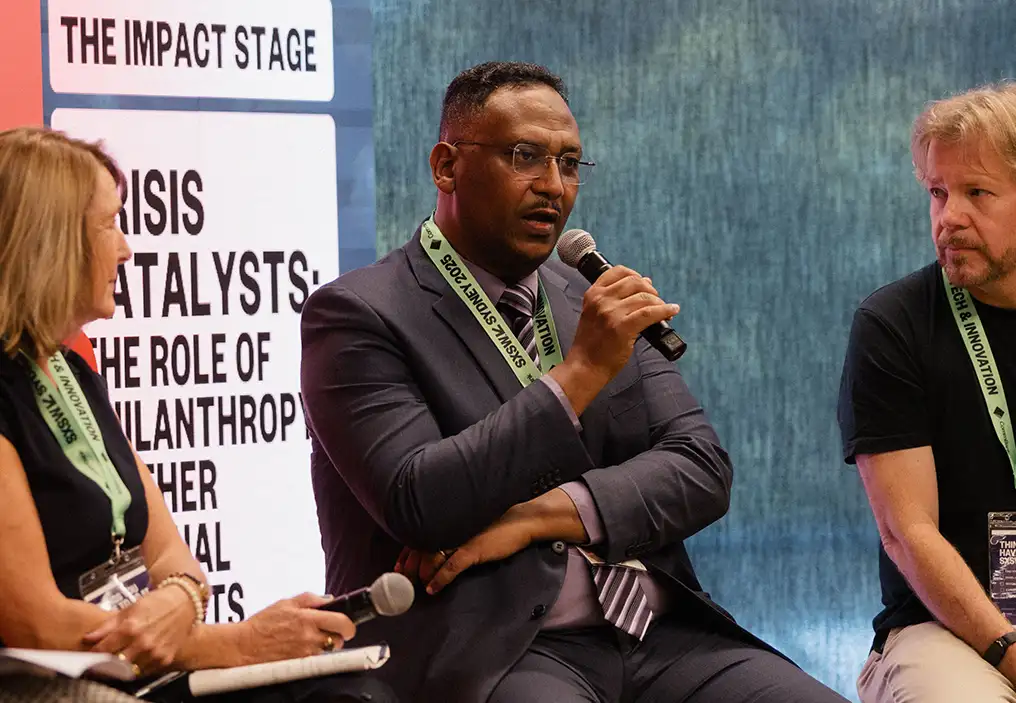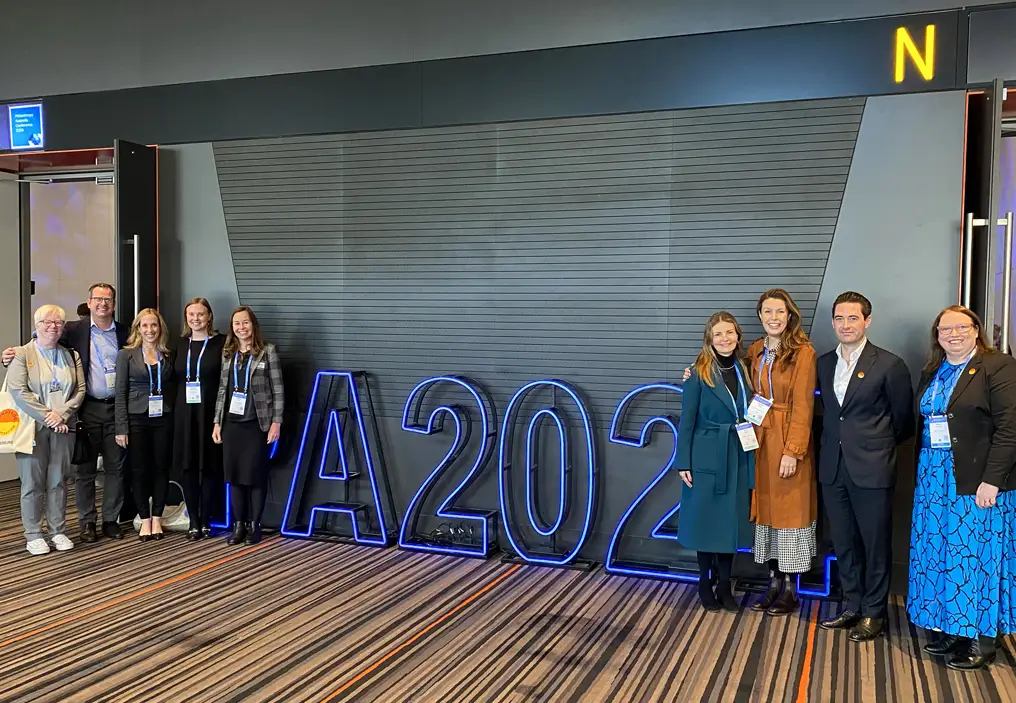At SXSW Sydney this year, the theme was clear but provocative: The future belongs to the curious.
By Ryan Ginard, Minderoo Foundation
This got us thinking about what that means for philanthropy, because if there’s one thing our sector could use more of, it’s curiosity with purpose. The kind that sparks bold ideas, challenges assumptions, and leads to real innovation.
Through our partnership with Charitabl., we launched the Impact Stage, a platform for bold thinking at the intersection of innovation, philanthropy, and purpose. Over three days, 53 speakers shared stories, strategies, and examples of generosity in action.
Here are five insights about the future of philanthropy.
1. Curiosity is where innovation begins.
Philanthropy has always been a source of impact and new thinking, but curiosity is where the spark starts.
Defining our risk appetite isn’t just a governance exercise; it’s a statement of identity. It determines how far we’re willing to go, the edges of our comfort zones, and the freedom to test, learn, and adapt in a rapidly changing world.
At SXSW, innovation was reframed through a generosity lens: a call to reimagine how we show up, take risks, and build cultures that reward experimentation. For philanthropy, this means embracing new approaches, accepting that not every project will succeed, and recognising that the process itself is often where the learning and impact happen.
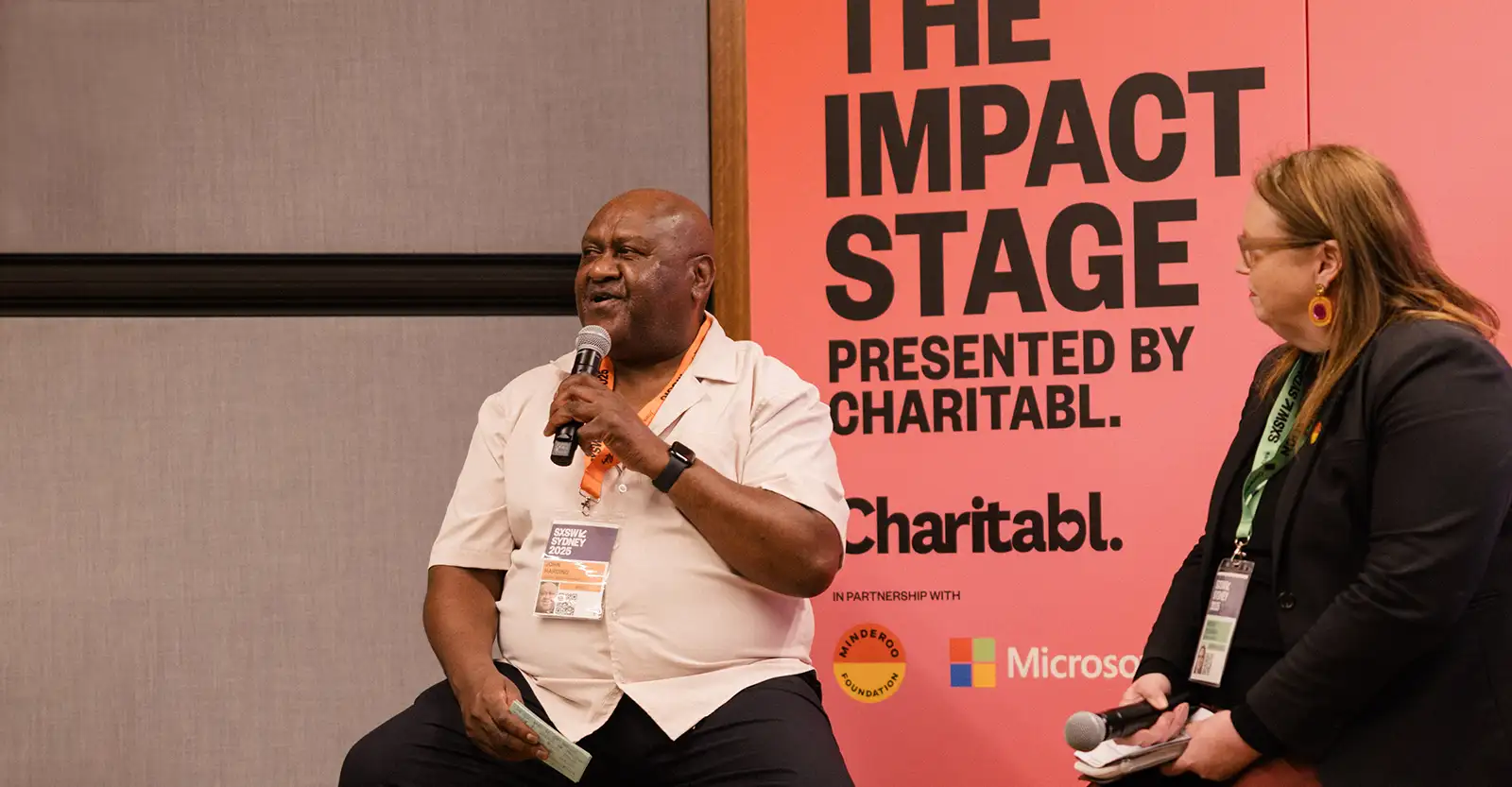
2. The future of giving is co-designed.
The Impact Stage was designed to move from talk to practice.
It brought together thinkers, innovators, and changemakers from First Nations leaders to grassroots organisers to challenge assumptions about what impact looks like and who gets to define it.
Sessions explored how collective giving can build movements for social change and how outcomes-based funding can be applied in real time. SXSW offered a live space to test these ideas, ensuring purpose-led organisations are funded for real impact, not just survival. This reflects the Pay What It Takes approach.
3. Equity and lived experience must be at the centre.
A cornerstone of our approach was equity. That meant recognising the value of knowledge and lived experience and ensuring speakers were compensated fairly for their time and expertise.
This made the process itself an example of generosity, respect, and sustainability, showing what ethical collaboration looks like in practice.
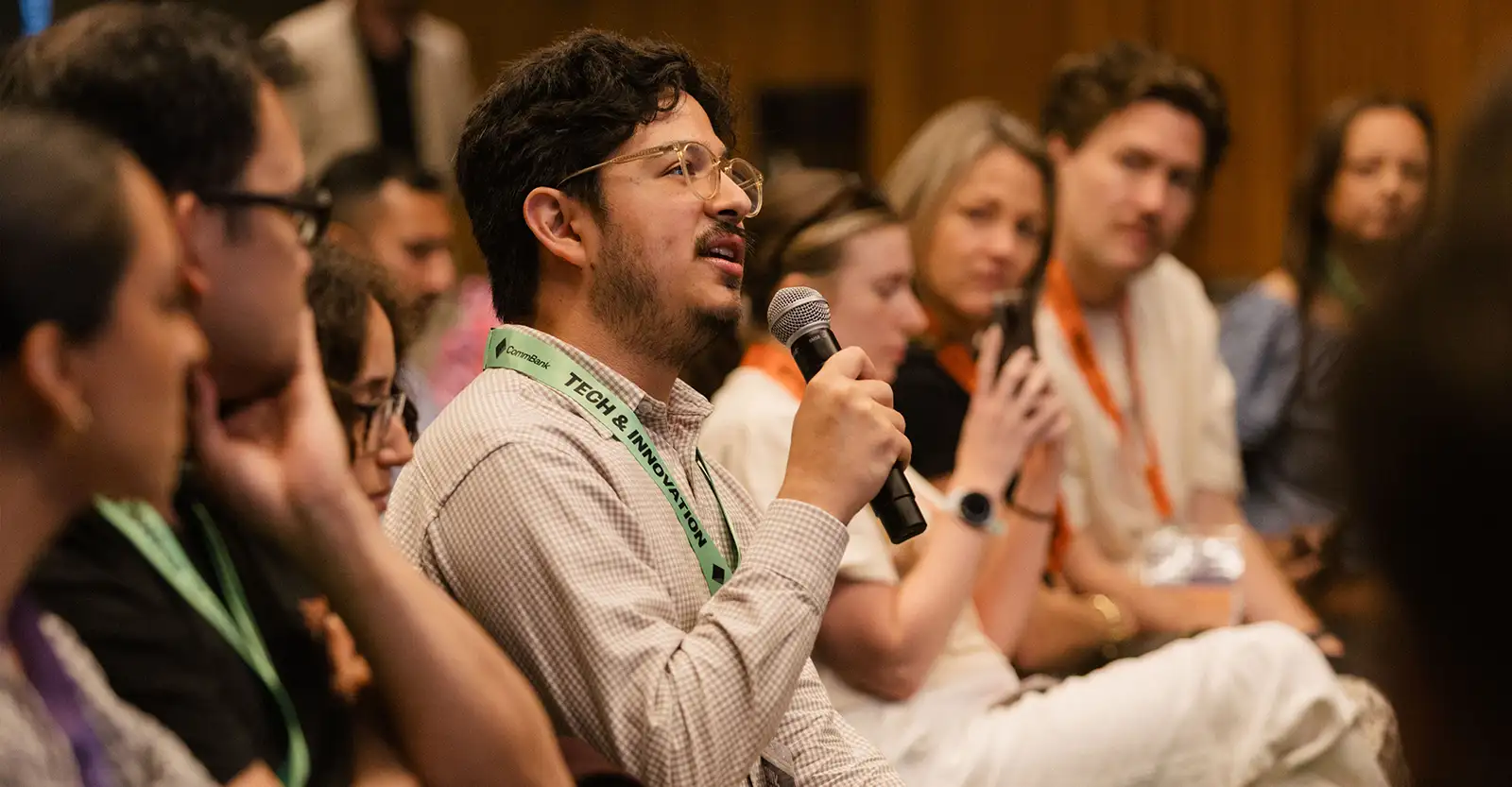
4. Generosity is becoming a practice, not a transaction.
Across the three days, sessions covered a remarkable range of topics, from embedding generosity into business and technology to rethinking humanitarian response and exploring how AI can amplify inclusion and accessibility.
The message was clear: generosity is moving beyond one-off donations and into everyday practice. Real change happens with communities, not for them.
Corporate philanthropy is maturing too, as organisations make long-term commitments that align purpose with strategy and keep power and equity at the centre.
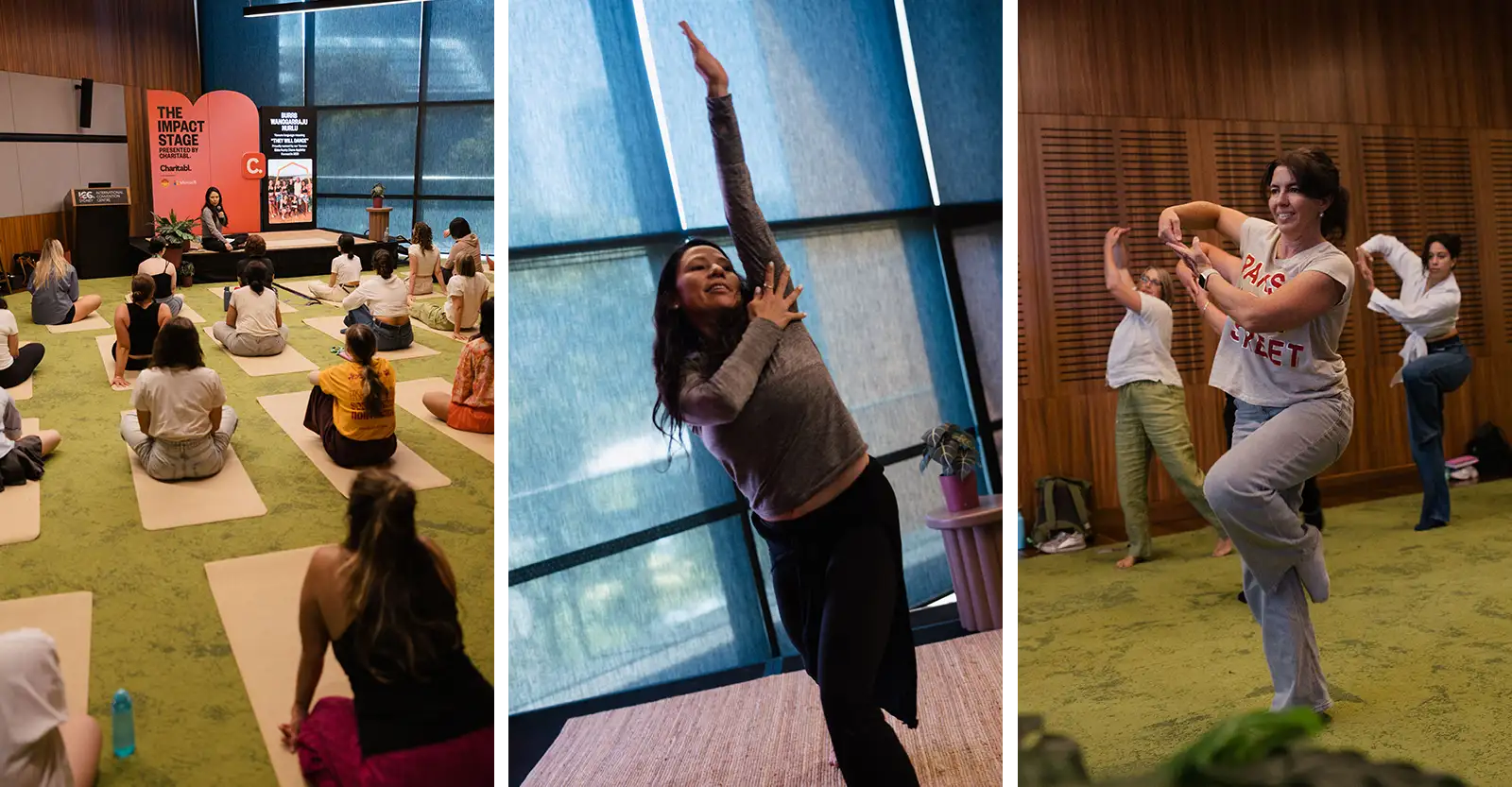
5. Curiosity connects art, science, and community.
Hands-on activations and creative sessions connected curiosity to action.
65,000 Years of Generosity with John Harding (Barmal Bijiril) and Kristen Stevenson (Minderoo Foundation) explored how only 1.5 per cent of Australian philanthropic giving reached First Nations communities in 2023 and what genuine, community-led partnership could look like.
Corporate Courage, featuring Angela MacMillan (Commonwealth Bank), Moo Baulch (Our Watch), Tarang Chawla (Not One More Niki), and Kristine Kaukomaa (Minderoo Foundation), highlighted how business can be a force for long-term social change.
Stories That Stick with Malinda Wink (Minderoo Pictures) and Rebecca Huntley (89 Degrees East) showed how storytelling and research can shift norms and inspire cultural change.
Other experiences included Listening to the Ocean, where Michael Bunce (Minderoo Foundation) and Joseph Di Battista (Griffith University) revealed Darling Harbour’s hidden marine life through eDNA, and Tara Gower’s dance workshop exploring movement, culture, and community connection.
Across every session, one truth stood out: curiosity isn’t just a mindset; it’s a practice.
When philanthropy leans into curiosity, courage, and collaboration, generosity and purpose stop being ideals to aspire to and start becoming part of who we are.
At SXSW Sydney, we saw what happens when curiosity leads, and why the future of philanthropy belongs to those brave enough to ask “what if?” and explore the answer together.
